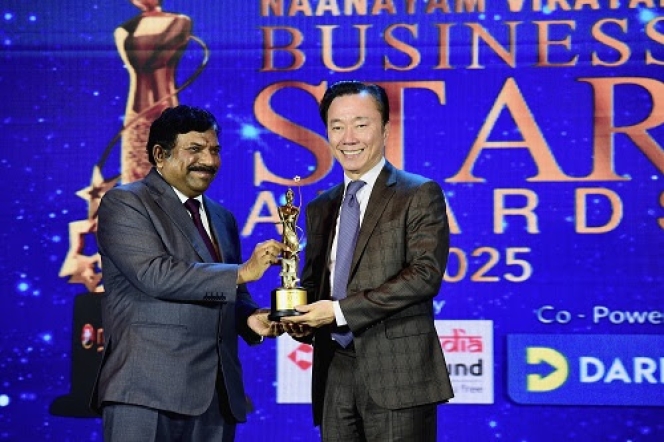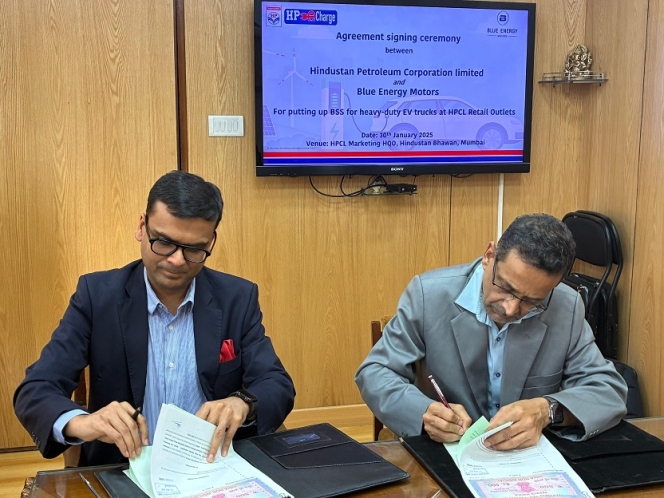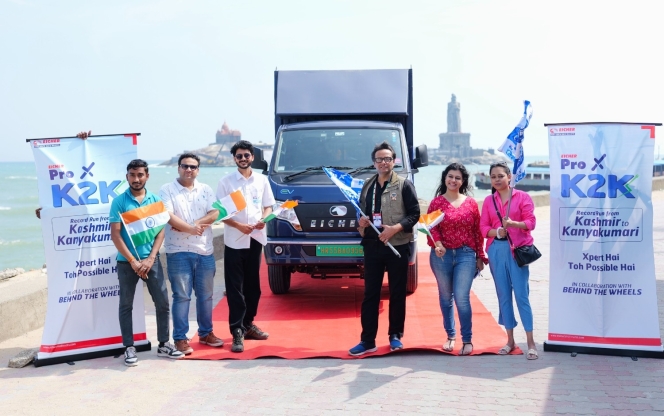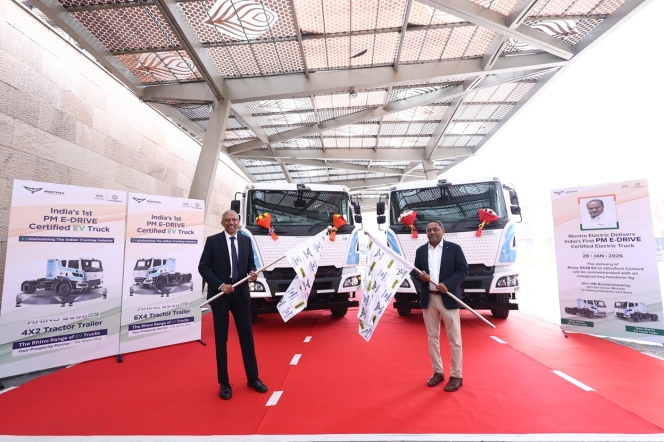Over 75% Of Global Battery Supply Chain Violating US and EU Labour Laws Finds Infyos
- By MT Bureau
- September 17, 2024

The lithium-ion batteries are at the heart of the transition from fossil-fuelled vehicles towards cleaner alternate powertrain options, but fundamental supply chain changes are needed to eliminate widespread forced labour and child labour abuses.
A recent research by AI supply chain risk platform Infyos has identified that companies accounting for 75 percent of the global battery market have connections to one or more companies in the supply chain facing allegations of severe human rights abuses. Most major battery manufacturers and end batteries applications are exposed including many of the world’s largest automotive, energy storage and electronics brands.
This new industry data is compiled from evidence on Infyos’ AI supply chain risk platform using thousands of government datasets, NGO reports, news articles and social media sources.
Infyos’ AI technology is developed specifically for the battery industry to automate the gathering, cleansing and classification of unstructured data to identify and assign confidence ratings to allegations of human rights abuses with accuracy and speed that previously was not possible.
The AI-driven platform claims it is working with some of the world’s largest renewable energy and automotive companies to combine open-source data with additional proprietary data sources to identify which companies a customer may be connected to across the supply chain and where there is exposure to or allegations of human rights abuses.
Tony To, Co-founder & CTO, Infyos said: “Our platform is designed to provide users with insights into the complexities of the battery supply chain so they can take proactive measures to identify and mitigate risks. By leveraging AI in our technology we’ve created a system that delivers accurate data despite the complexity of the battery industry and most importantly provides users with simple actionable mitigations to collaborate with their suppliers to address risks and improve the sustainability of the industry.”
The report finds that widespread human rights abuses identified range from people being forced to work in lithium refining facilities under the threat of no or minimal pay to five-year-old children mining cobalt materials out of the ground in hazardous conditions. Severe human rights incidents are occurring globally, especially in resource-rich countries with fragile and corrupt governments like the Democratic Republic of Congo and Madagascar.
However, most of the allegations of severe human rights abuses involve companies who are mining and refining raw materials in China that end up in batteries around the world, particularly in Xinjiang Uyghur Autonomous Region (XUAR) in northwest China where the battery, automotive and solar industry has already been hit with public allegations of widespread forced labour from journalists, government agencies and non-profit organisations.
Complex supply chain
Electric vehicle and battery manufacturers have a complex supply chain, sometimes with over 10,000 suppliers across their network, from mines to chemical refineries and automotive manufacturers. Human rights abuses frequently occur upstream in the supply chain, notably at the raw material mining and refining stages, making it difficult for companies purchasing batteries to identify their supply chain risks.
The battery industry’s connections to these incidents stem from manufacturers sourcing components or materials from unethical companies in their supply chain network or entering business relationships, including joint ventures or equity investments hidden in complex and changing ownership structures, which conceals the reality of the unethical connections.
Sarah Montgomery, CEO & Co-Founder, Infyos added, “The relative opaqueness of battery supply chains and the complexity of supply chain legal requirements means current approaches like ESG audits are out of date and don’t comply with new regulations. Most battery manufacturers and their customers, including automotive companies and grid-scale battery energy storage developers, still don’t have complete supply chain oversight.”
It is important to understand that sourcing is coming under growing scrutiny, particularly in Europe and the US, where failure to address the issues means companies could be in breach of current and future regulations.
This is damaging the battery industry’s clean credentials and hampering investment into the global battery market forecast to be worth nearly $500 billion (INR 41,655 billion) in 2030. With more legislation such as the EU Battery Regulation and the US’s Uyghur Forced Labour Prevention Act (UFLPA) being phased in, action must be taken now so companies can still sell their products.
Jeff Williamson, Head of Sustainability, Infyos said: “Companies manufacturing or purchasing batteries are at risk of having their products blocked at the market, further delaying and increasing the costs of renewable energy projects or tarnishing their reputation because of human rights risks.”
The UFLPA prohibits the import of goods made with forced labour in the Xinjiang region of China. The penalties for non-compliance can be extreme: earlier this year inspectors blocked vehicles they found to violate the regulations. The US Senate Finance Committee Chair has accused automotive manufacturers of ‘sticking their heads in the sand’ over forced labour in their supply chains and a subsequent report recommended that the Department of Homeland Security and Customs and Border Protection take further measures to strength enforcement of the forced labour ban in automotive supply chains, including placing CATL – the world’s largest battery cell manufacturer – on a list of companies banned due to their connection to forced labour. Europe is following suit with its forced labour ban while a proposal has been submitted to increase the fines for non-compliance with the UK’s Modern Slavery Act to 4 percent of global annual turnover.
Sarah Montgomery, CEO & Co-Founder, Infyos said: “We have already seen how forced labour incidents in supply chains for the solar industry have blocked the largest solar suppliers from the US market and slowed down the transition to clean energy: as the battery industry faces the paradigm shift to electrification, the lessons learnt in solar must be applied to the battery industry if the energy transition is to stay on track.”
Battery-specific regulations within Europe are becoming more stringent too. New EU Battery Regulations coming into effect between 2024 and 2036 require much more rigorous supply chain visibility and risk management starting in 2025 with non-compliance leading to products being blocked from the European market. These pressing supply chain requirements, which many in the industry are struggling to comply with, are foundational to the much-talked-about battery passports in 2027. The UFLPA and EU Battery Regulation are widely seen as the battery industry gold standard due to their strict requirements on due diligence and supply chain visibility, and many companies operating outside of the regions are voluntarily aiming to meet their requirements.
By addressing issues within their supply chain, companies not only continue to have a licence to operate and avoid costly fines but can also actively grow their business: Research from PwC found that 89 percent of institutional investors are considering or have already rejected investments in firms with ESG shortcomings. Additional human rights pressure is coming from investors, who are now mandating deeper supply chain risk management and visibility as a condition of lending or investment to minimise their own financial risk. While financial and regulatory pressures are increasing awareness of human rights abuses in battery supply chains, more industry action to address human rights abuses is needed to drive battery applications forward and ensure 2050 net-zero emissions targets don’t face total failure.
- VinFast
- Investor of the Year
- Urban Electric Vehicle of the Year
- VinFast VF 7
- Motor Vikatan Awards 2026
VinFast Wins Dual Honours In India For Investment And Electric SUV
- By MT Bureau
- January 31, 2026

VinFast’s strategic progress in India has been further validated through recent accolades from the influential Vikatan Group media network. The company was distinguished with two significant awards: one recognising its substantial investment commitment, and the other honouring its VF 7 model as the premier urban electric vehicle for 2026. These commendations underscore the brand’s deepening integration into the Indian automotive sector, highlighting both its industrial strategy and its product relevance.
The title of Investor of the Year, conferred by Nanayam Vikatan business magazine, specifically acknowledges VinFast’s landmark commitment to establishing an electric vehicle manufacturing facility in Thoothukudi, Tamil Nadu. This project is noted not only for its scale and strategic clarity but also for its anticipated role in fostering a new industrial corridor, generating employment and bolstering the local supplier network. It aligns with national initiatives like Make in India and reflects confidence in the region’s manufacturing potential.
Concurrently, the VF 7 electric SUV was named Urban Electric Vehicle of the Year at the Motor Vikatan Awards 2026. This recognition from automotive experts underscores the model’s successful adaptation to India’s urban driving conditions, balancing design, performance, safety and comfort. It serves as a testament to VinFast’s product development focus and its localisation strategy aimed at meeting specific market demands.
As a respected media institution in South India with a legacy dating to 1926, the Vikatan Group’s awards carry considerable weight among businesses and consumers. These latest honours add to a growing list of VinFast’s achievements in the market, illustrating the convergence of its investment, manufacturing, and product efforts. Within a short timeframe, the company has employed a long-term strategy encompassing manufacturing, retail, charging infrastructure and after-sales services. Through this comprehensive approach and a focus on sustainable innovation, VinFast is steadily building its brand presence while contributing to India’s transition towards green mobility.
Pham Sanh Chau, CEO, VinFast Asia, said, “Being recognised in two important award categories demonstrates how VinFast is steadily building its position in India, not only through long term investment commitments but also through products developed to match local conditions and user needs. This recognition provides further momentum for us to accelerate implementation, expand the electric vehicle ecosystem, and maintain a long-term partnership with the Indian market.”
B Srinivasan, CEO, Vikatan Group, said, “VinFast India represents the new-age investor – bold in vision, swift in execution and deeply aligned with India’s growth story. By unravelling the true potential of the port city of Thoothukudi, VinFast India has helped create a conducive industrial ecosystem, played a positive role in employment generation and restored the city’s importance on India’s manufacturing map. Their investment is not just capital at work but confidence in India’s future.”
Blue Energy Motors And HPCL Forge Nationwide Pact For Electric Truck Battery Swapping
- By MT Bureau
- January 30, 2026

Blue Energy Motors and Hindustan Petroleum Corporation Limited (HPCL) have entered a strategic partnership to deploy Battery Swapping Stations for electric commercial trucks at select HPCL fuel outlets nationwide. This initiative leverages HPCL’s extensive network of over 24,400 retail locations to create a widespread and convenient energy infrastructure for freight operators. By situating swap stations within established fuelling hubs, the collaboration seeks to make electric mobility a practical and scalable reality for India’s logistics sector.
The core advantage of battery swapping lies in its dramatic reduction of energy replenishment time to under five minutes, minimising vehicle downtime compared to conventional charging. For fleet operators, this efficiency translates into higher vehicle utilisation, improved productivity and more predictable scheduling. Furthermore, a growing and accessible network of swap stations alleviates range anxiety, enabling electric heavy-duty trucks to confidently undertake longer routes and multiple shifts.
As India advances its green transportation goals, this alliance holds significant strategic value. HPCL’s vast retail footprint, which already supports over 5,400 EV charging points under its HP e-Charge brand, offers a ready platform for rapid infrastructure deployment across key freight corridors. Blue Energy Motors, a pioneer in zero-emission freight solutions, brings its expertise in electric commercial vehicles, exemplified by its launch of India’s first electric freight corridor. Together, the companies aim to accelerate electric vehicle adoption by directly addressing the operational needs of commercial fleets, thereby strengthening the long-term development of sustainable freight transport in the country.
- Eicher Trucks and Buses
- VE Commercial Vehicles
- VECV
- India Book of Records
- IBR
- Eicher Pro X
- Vinod Aggarwal
- SS Gill
- Abhishek Chaudhary
Eicher Pro X EV Completes Kashmir To Kanyakumari Journey In 6 Days
- By MT Bureau
- January 28, 2026

Eicher Trucks and Buses, part of VE Commercial Vehicles (VECV), has completed a journey from Kashmir to Kanyakumari using its Eicher Pro X EV.
The record verified by the India Book of Records (IBR), saw the electric vehicle cover over 4,000 kilometres in 6 days under loaded conditions. The run commenced in Srinagar on 20 January 2026 and concluded in Kanyakumari on 26 January 2026, traversing the Himalayas, plains and the Deccan Plateau.
Throughout the expedition, the vehicle utilised public chargers located via the MyEicher App. An adjudicator from the India Book of Records accompanied the truck to monitor route compliance, load, distance and charging stops. The mission served as a demonstration of electric vehicle endurance across diverse altitudes and climates to validate the technology for logistics corridors.
The journey was intended to show that electric commercial vehicles can operate beyond short-haul deliveries. By maintaining performance across hilly and coastal routes, the Pro X EV aimed to establish total cost of ownership (TCO) benefits and maintenance predictability for fleet operators. The successful completion of the route suggests that current charging infrastructure can support long-haul electric freight movement.
Vinod Aggarwal, MD & CEO, VE Commercial Vehicles, said, “For more than four decades, Eicher trucks and Buses have earned customer trust through leadership in fuel efficiency and application-specific engineering. The record-setting performance of the Eicher Pro X reinforces our unwavering focus on application excellence, reliability, and performance, anchored in robust product development and manufacturing capabilities, and enabled by a customer-centric, pan-India commercial and dealer network. I commend the entire Eicher team for achieving these well-deserved records”.
SS Gill, Chief Commercial Officer, VE Commercial Vehicles, said, “By covering the K2K route with a loaded Pro X EV, Eicher Trucks & Buses has proven that electric mobility is no longer restricted to short-haul, ‘last-mile’ deliveries. We are not just setting records, but through the strength of our service network and extensive dealer set-up, we are demonstrating that our EV technology is commercially viable, reliable, and has the range to serve as the backbone of India’s green logistics corridors”.
Abhishek Chaudhary, SVP – SCV Sales & Marketing, VE Commercial Vehicles, said, “The Eicher Pro X EV was put to the ultimate test – covering over 4000 kilometres across diverse climates and challenging altitudes. With this recognition from the India Book of Records we’ve moved beyond our own stringent testing benchmarks to real-world validation - Demonstrating that Eicher Pro X EV is a dependable partner for logistics movement across varied operations in India”.
- Montra Electric
- Murugappa Group
- PM E-Drive Scheme
- Rhino 5538 EV 6x4 Tractor trailer
- Narendra Modi
- H D Kumaraswamy
- Arun Murguappan
- Sathia Raj
- UltraTech Cement
Montra Electric Becomes First OEM To Receive PM E-Drive Certification For Heavy Trucks
- By MT Bureau
- January 28, 2026

Montra Electric, the electric medium and heavy commercial vehicle business of the Murugappa Group, has become the first manufacturer in India to receive certification for heavy-duty electric trucks under the government's PM E-Drive Scheme.
To mark the achievement, the company delivered a Rhino 5538 EV 6x4 Tractor trailer to UltraTech Cement. The handover took place in the presence of Arun Murugappan, Chairman of Montra Electric and Sathia Raj, Chief Procurement Officer of UltraTech Cement.
The PM E-Drive scheme includes a budget of INR 5 billion specifically for electric trucks, providing a benefit of up to INR 960,000 per vehicle for the Rhino 5538 EV. This incentive is intended to lower operating costs and reduce exposure to fuel price volatility for fleet operators in the logistics, mining, and manufacturing sectors. The Rhino 5538 EV range is designed for Indian conditions and is available in 6x4 and 4x2 variants.
The Rhino 5538 EV 4x2 variant features a 282 kWh LFP battery that produces 380 HP and 2000 Nm of torque. It offers a range of approximately 198 km under standard test conditions and supports six-minute battery swaps. These specifications suit the vehicle for high-utilisation applications in ports, steel plants, and cement logistics.
H D Kumaraswamy, Union Minister for Heavy Industries, said, "The PM E-Drive scheme is a testament to the growing prowess of Indian innovation in the heavy-duty electric vehicle segment. Under the visionary leadership of Prime Minister Narendra Modi, we are committed to decarbonizing our logistics and making India a global hub for EV manufacturing. Electric trucks are pivotal to our Net Zero goals, and by fostering a self-reliant ecosystem through such certifications, we are driving the spirit of Atmanirbhar Viksit Bharat. We are very happy to see our Prime Minister’s vision coming to life with the 1st PM E-Drive certified heavy duty electric truck from 'Montra Electric' getting delivered today."
Arun Murugappan, Chairman, Montra Electric, said: “Decarbonising freight is one of the most critical challenges in India’s energy transition. We are grateful to the Government of India and our Prime Minister Narendra Modi for introducing forward-looking and progressive policy frameworks such as the PM E-Drive Scheme, which represent a welcome and transformative step in accelerating this shift, particularly in heavy commercial vehicles where emissions intensity is high. At Montra Electric, we are proud to contribute to this national mission by delivering technologically advanced, reliable, and scalable electric M&HCV solutions that can drive meaningful and lasting change in India’s mobility ecosystem.”








Comments (0)
ADD COMMENT